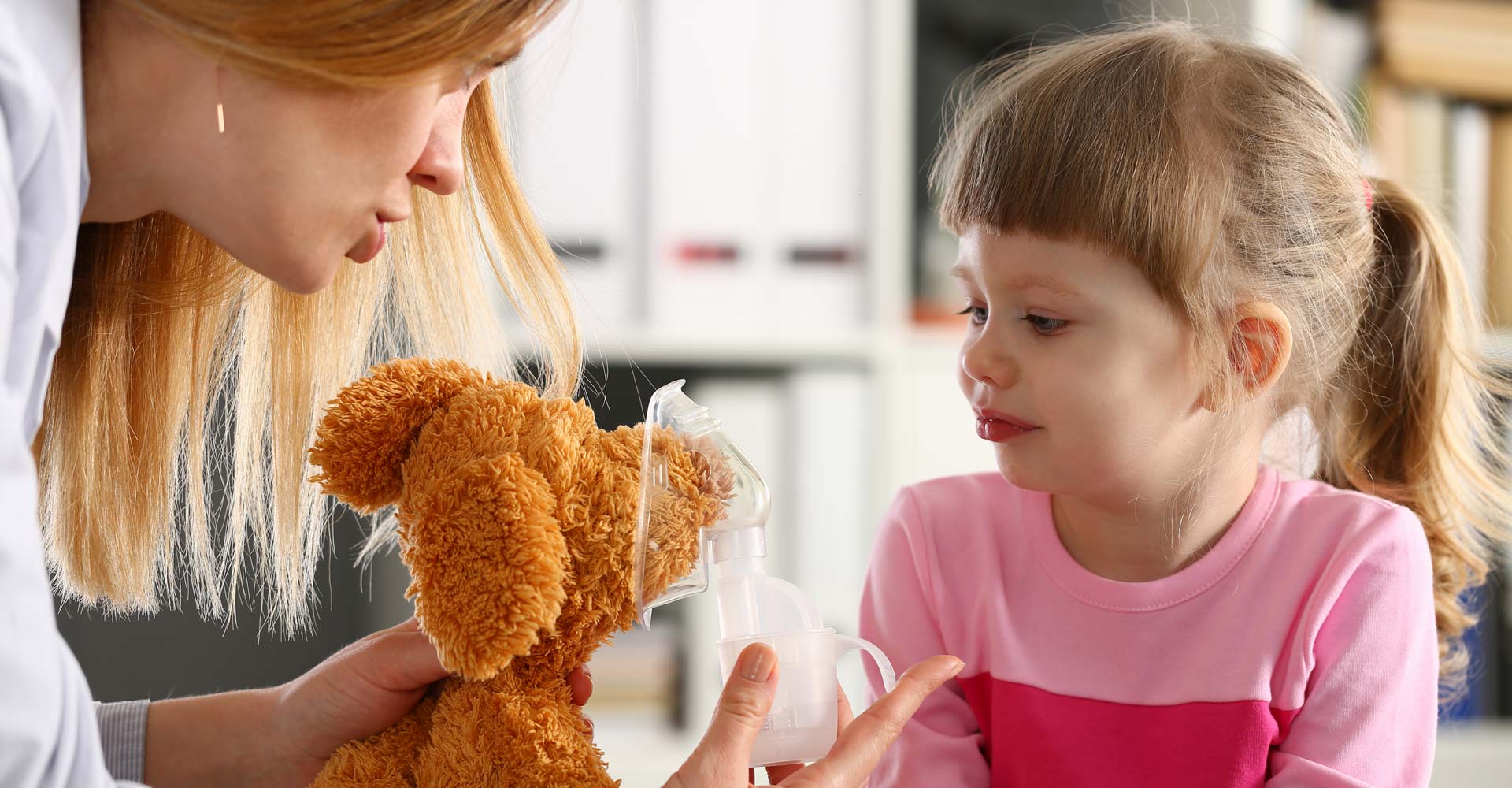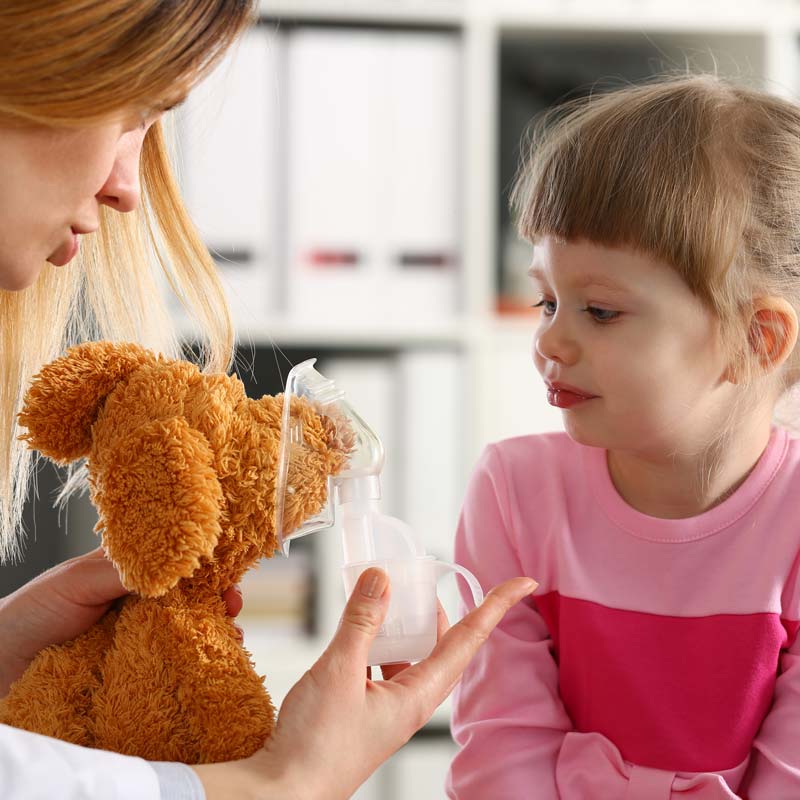The lungs are the organs with which we breathe. The air inhaled through our nose or mouth enters the lungs via the trachea and bronchi (large airways), thus bringing in oxygen. In the lungs, the oxygen is conveyed to small sacs, the alveoli, through a network of branches, called “bronchioles”. The exchange between oxygen and carbon dioxide occurs in the alveoli. Oxygen is then transported to all organs and tissues via the blood stream.
When breathing, together with oxygen, we can also take in other substances, called “triggers”, that may irritate the airways or may be recognised as harmful by the immune system. In some cases, these substances may cause asthma or trigger asthma symptoms in someone who already has asthma.
In fact, asthma is caused by inflammation in your lungs. Sometimes this is due to a hyperreaction of the immune system. In some conditions, your body’s immune system triggers inflammation even if there are no external substances to fight off. Tightening of the airways may cause severe air hunger and can be even life-threatening.
If you have asthma, the following may occur in your lungs:
- Swelling: The lining of the airways of your lung becomes swollen.
- Increased mucus: Too much mucus that may plug or block the airways is produced.
- Muscle tightening: The smooth muscles that surround your airways tighten and the airways become narrower. This tightening is referred to as “bronchospasm”.
When asthma is not being treated with anti-inflammatory inhalers, the muscles around the airways can be extra-sensitive. This means that they react faster and more strongly to various triggers, such as allergens, viruses, dust, smoke and stress, thereby giving rise to the typical symptoms of asthma , such as a wheezing sound, shortness of breath, chest tightness and cough.

In the long-term, uncontrolled asthma may cause permanent damage to the walls of the airways, thereby preventing them from opening as widely as normal and reducing lung function. To prevent permanent damage to the lungs, it is crucial that children start the appropriate treatment as soon as possible. Permanent damage to the lungs and airways may also be caused by exposure to cigarette smoke and other irritants. Lung function also decreases as we get older, even in people who do not have asthma.

